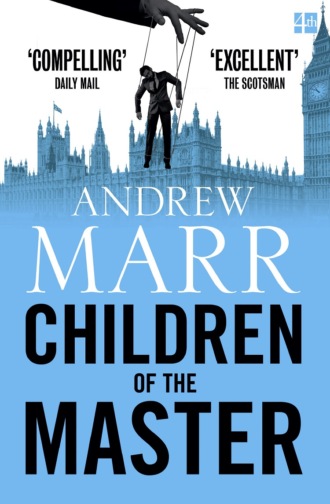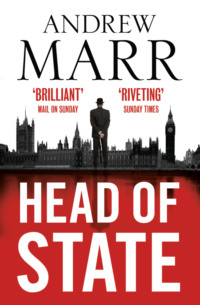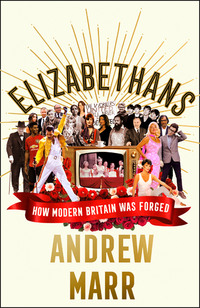
Полная версия
Children of the Master
The guests gathered in knots, broke up again and re-formed as they circulated around the house. In even the most neglected rooms there was always a candelabra and a sofa, where a journalist or a photographer might be placed. The flashes of photography ricocheted through the house like perpetual lesser lightning. And there was plenty to photograph – all those seamed, creased, famous faces: the curving eyebrows and drawn, tortured, gathered-up and stitched flesh of actresses better known for who they had bedded than for their talent; the pendulous, hairy jowls and stained-toothed smiles of public servants. There a law officer, here a criminal; and here the two together, a hand resting lightly on a shoulder. Swarming through the dark honeycomb of the house, human crocodiles, human lampreys, human prairie dogs, all jostling and snapping when they spoke.
And, just as there was plenty to capture, so there was plenty to speak about, so many old friends to discover. Stories of old political battles, long-forgotten legal suits and complicated love tangles were being rehearsed as the drink disappeared. Good old Burgundies, flinty unoaked and vintage Chardonnays circulated on the silver trays – sweet, succulent southern sunshine for gaping, dusty northern gullets. For those who preferred, the best Islay malts and vintage brandies were there to scald and burn on the way down. The massive mahogany table at one end of the ballroom was expertly stripped by the beautiful staff, who brought round plates of bloody grouse, like the aftermath of a Balkan massacre, and slivers of white halibut, and dishes of oysters.
All was going swimmingly until, about an hour into the party, something strange began to happen.
It was like a quiet but irresistible wind. The susurration started at the downstairs bar, worked its way up the main staircase, arrived in the ballroom, and then pushed outwards into numerous smaller rooms and crowded corridors. As it shouldered its way through the guests, the disturbance gained strength. Gasps spread with the speed of an epidemic; mutters grew to the volume of a waterfall. Everywhere there was a shaking of the atmosphere, a shared shock you could touch and watch move from group to group. ‘It’ was nothing but comprehension, Lupin’s boldest artwork taking shape. It was an awakening, the more real the more the guests looked around.
Almost every single person there, they realised, was not just famous, but infamous – disgraced. There in one corner were those who had lied while taking Britain towards damaging and dishonourable conflicts. Opposite them was a clutch of politicians who had been caught hiring themselves out like common prostitutes – and look, the men who had hired them – and observing it all from the other end of the room were the prominent, well-paid journalists who had ignored it because they were too busy bribing officers of the law in order to destroy decent people. Eating their canapés were NHS bosses who had tried to conceal deaths caused by incompetence and cruelty. Swilling down their wine were bankers who had destroyed their own banks and scurried off with barrowloads of money to roll in after they were stripped of their knighthoods. Loud laughter came from popular entertainers accused of raping young fans, and ex-DJs whose paedophile obsessions had become public. All evening Neil Savage, Lord Lupin, had been waiting, wondering when the penny would drop.
The very few who hadn’t already been disgraced looked as guilty as if they expected it at any time. There, for instance, nursing a whisky, was the Conservative peer Lord Auchinleck, with a face like a swollen, furious baby’s and pouchy eyes, his little pot belly squeezed into tartan trews of his own design.
Hardly anybody had been invited to Neil Savage’s most lavish party who had not been publicly exposed for their greed, lust or overweening ambition. But mostly greed. Almost without exception, every person there had once been on the front page of a newspaper, looking ashamed – or shocked, as a photographer tripped over in front of them.
What kind of honour was this? What species of revelry? The wind of panic grew stronger. Within minutes, people were uneasily shuffling towards the front door, only to be confronted by another row of cameras. At Worcestershire Hall that night there was no hiding place.
It was a one-time lord chancellor, who’d lost his job because of his addiction to rent boys and cocaine, who confronted the host. ‘What the fuck? What the fuck?’ he spluttered as his large purple forefinger jabbed Savage.
Lord Lupin smiled coolly back. ‘Fanny, Fanny, we’re all friends here. What’s the problem? Don’t like the food? Don’t like the music? You clearly do like the booze. So maybe it’s the company?’
‘This is some kind of sick trial by media, you ghastly little shit. Some kind of joke, and we are all the punchline,’ replied the elderly man. ‘I feel like making you my punchline, actually.’
‘Calm down, Fanny.’ By now there was quite a circle of equally upset men – and a few women – crowding around the banker-philanthropist host. ‘Yes, all right, I am making a point this evening,’ said Lord Lupin. ‘You are the people they would like to disappear. You are the people they would like, for their own paltry peace of mind, to think are villains, rare creatures who break the rules. But you are not – none of you – anything more or less than ordinary human beings, with your appetites and your competitive instincts and – forgive me – your swollen cocks. And you are still here. I am still here. So laugh at disgrace, I say. Mock the smug hypocrisy of the herbivores and dreary midgets who pretend to judge you. Raise your glasses, drink deep and – Welcome to the Underworld.’
Lord Lupin regretted the party when he awoke around mid-morning the following day. After a lifetime of political interference, he’d learned that some of his best jokes had unexpected consequences. It was Lupin, back then simply Neil Savage, the aspiring rock guitarist, who had dissuaded the young Tony Blair from a career at the bar and pointed out to him that the then-failing Labour Party provided the smoothest route into Parliament and onto a front bench. It was he who, as a young man, had turned Boris Johnson away from his youthful Eurocommunism and towards the Bullingdon Club. Neither of these pranks had turned out exactly as he had expected.
And now there had been a death. It was most unfortunate. The ex-lord chancellor had followed Lupin’s speech with a bellow, a flailing fist, and a heart attack. Central London roadworks ensured that the ambulance arrived late, and the overweight grandee expired. On the night for dead souls, there was now one more to remember.
After the Funeral
First, you know nothing – but they like you. Then, second, you know stuff, but they hate your guts. Between popular uselessness and loathed effectiveness, you have – how long? About a weekend.
The Master
The funeral had been a long one, in a polychromatic Anglican church so high that the streets for half a mile around smelled of incense. It had, apparently, been the ex-lord chancellor’s wish to inflict on all his atheist friends the full rigour of a proper funeral service. A wit and a man of faith, as well as pederast, he had long abhorred services with Beatles music and heart-tugging slide shows of the deceased as a young child. Ritual was the best sedative for sorrow – common wisdom which had been forgotten. So all of those milk-and-water agnostics and politically-correct pew-dodgers had had to sit through endless readings from the penitential Psalms, from Corinthians and Revelation from the St James Bible, to kneel for prayers, shuffle forward for the Eucharist, and sit again for a socking long sermon that made disapproving reference to the All Hallows party.
The ex-prime minister, universally known as the Master, who was in his way a serious believer, had read one of the lessons. After the service, with the coffin taken away for burial, half a dozen members of his former cabinets had stood around stretching their backs and rubbing their buttocks and wondering about lunch. The Master had a brace of limousines waiting, and he took them half a mile away, beyond the reach of the paparazzi, to a quiet public house, The Moon in Her Glory.
A back room, once reserved for ‘the ladies’. A battered round deal table, half a dozen Victorian chairs, and a hatch for the beer.
‘White-wine spritzers, everyone?’ asked the former prime minister, slapping his hands together.
‘A wee spritzer?’ spluttered Murdoch White, the former foreign secretary and defence secretary. ‘Hell’s bells. You always were a degenerate metropolitan ponce. A small whisky and a half of IPA for me.’
‘Murdoch, Murdoch. So predictable. You’re an incorrigible dinosaur. You’re like a bigoted, scaly old sea monster that only comes up once a decade to roll your eyes at us. Anyway, that was what we always drank.’
‘Aye, when you were sodding prime minister it was. We’d have drunk cabbage water if you’d told us to. Now you’re not.’
One by one the others – Margaret Miller, former home secretary; Sally Johnson, former party chair; Alex Brodie, industry and then briefly chancellor; the sly, Machiavellian figure of Leslie Khan, the party fixer and Northern Ireland secretary – ordered their drinks. None of them asked for a spritzer.
The Master recovered quickly. ‘Well, it may not be a proper oak table, but here we are assembled, the Knights of the Grail, together again for the first time since my esteemed former chancellor broke the enchantment and cast us out … Yeah, yeah, I’m joking guys, come on … But it’s kind of good to be together again, isn’t it?’
‘Bloody sad too, though,’ said Murdoch in a gravelly Ayrshire growl.
‘Yes. Poor old Simon. What a way to go. He had many more years in him, I’d have thought,’ said the ex-prime minister.
‘No, no, I didn’t mean that,’ said Murdoch. ‘Though it’s a pity the poor bastard died with the anger on him. No, I meant it’s a bloody pity we’re all here, out in the cold, fuck-all use to anybody. Just – sad.’
Miller and Johnson, the two gatekeeper women who had supported the PM to the last, and beyond, broke in, protesting. Their leader, the Master, was doing good work in the Middle East, and raising large sums for Africa with his speeches. They both spoke at some length, and the Master had the grace to look faintly embarrassed. When they’d finished he shook his head, rapped the table as if calling for silence, and began to talk in that familiar tone of unctuous, confiding seriousness.
‘No, Maggie, no, Sally. Murdoch makes a very good point. Yes, of course, we all do what we can. Public service runs through us; it’s in our DNA. But where it counts most, here at home, we’ve become completely voiceless. New Labour has vanished back into the Labour Party – with, I have to say, entirely predictable results. The Tories have ripped us out of Europe. The Scots are off – partly, I confess, my fault. It’s back to a choice, apparently, between permanent class war or heartless free-market fundamentalism, fairness or efficiency – but never both. Exactly the choice we devoted our lives to eliminating. I’ve never been as depressed about this country as I am now. We have capitalism, but we have no social democracy. It’s a bloody waste …’
‘And the worst of it is,’ Leslie Khan interjected, ‘we’re all actually at the height of our powers. I know things I learned the hard way as a minister, and I’ve learned new things in business since. I know how to make a government department work, and I know how to rally public opinion. But I can’t get a hearing. The newspapers, for what they’re worth, won’t commission articles from any of us. They don’t even pick up on our blogs or tweets. That little shit who made fools of us all at his damned party had a point, perhaps. We are the politically undead. We live in limbo. We’ve always been frank with ourselves, so let’s be frank now. This is a convocation of fucking zombies.’
‘Agreed,’ said the Master. ‘Lurid language, but not so far from the truth. It might be a limbo of air-conditioned offices and first-class flights, with the occasional television studio thrown in, but it’s a limbo nevertheless. Whenever I think I’m going to be let back into the conversation – when there’s the right Newsnight moment, or whatever – I do my bloody best, but it’s all “Yadda-yadda-yadda, Iraq, illegal war, liar, blah, blah, blah.”’
‘Fucking cunts,’ interjected Murdoch. ‘Hypocritical little shits. God, I hate the fucking Guardian.’
That got everybody, even Leslie Khan, who had once worked there, nodding their heads and grunting.
‘It goes back to my old paradox’ – the Master again. ‘When you first arrive in power, you have maximum authority. You are the people’s choice. You have momentum. The wind at your back. But you don’t know how to do anything. By the time you’ve learned the lessons, worked out where the levers are and how to use them, sucked up all the tricks of survival, then ten to one your authority has gone. You’ve become discredited, disgraced, or merely boring. It’s all over. You can have either wisdom or power, but never both at the same time. So my question is this: under such an arrangement, how can a serious democracy ever be properly run?’
There was a silence. The chips and the sandwiches arrived. Even they looked sad.
The former prime minister continued. ‘You end up with the next lot of innocents, perhaps not making exactly the same mistakes, but lots of new mistakes of their own. Miliband. Grimaldi. And by the time they’ve learned from them, again, it’s too late and they’re out. For the past few years I’ve worked on the assumption that there’s nothing that can be done about this. Our faces are no longer welcome. Nobody listens to us any more, and they never will. So all that accumulated understanding, from a little wisdom to a lot of gamesmanship, is just going to go to waste. But recently I’ve been wondering – Leslie, Murdoch, girls – need it be so? If our faces are too old, let’s find some new faces. If we can’t use what we know for ourselves, why can’t we use it for others? When the left, the unions, don’t like the way the party’s going, they don’t just sit back. They organise, as we know to our cost, and they try to take the power back. Is there any reason we can’t do the same?’
Khan was brushing his little beard with tapering fingers. A little smile of delight appeared on his face. ‘Oh Master, you’re not suggesting we run moles, are you?’
‘Entryists? Like a bunch of Trots?’ barked White.
‘No, not as such. But if we could identify just a few bright, talented, potential new leaders, and help them up the ladder, we could control the party by proxy. Fresh skins, sleepers – call them what you will. But sleepers for common sense, moles for the American alliance, entryists for a sensible European future – all that.’
‘Manchurian candidates?’
‘Well,’ said the former prime minister, ‘we don’t need to go as far as brainwashing, still less assassination, do we? Just a little help here and there. A team. And we give the party a new leader, a better leader. A leader we have shaped, and who we control. Once we thought the future was ours. Let us dare to think it again.’
Конец ознакомительного фрагмента.
Текст предоставлен ООО «ЛитРес».
Прочитайте эту книгу целиком, купив полную легальную версию на ЛитРес.
Безопасно оплатить книгу можно банковской картой Visa, MasterCard, Maestro, со счета мобильного телефона, с платежного терминала, в салоне МТС или Связной, через PayPal, WebMoney, Яндекс.Деньги, QIWI Кошелек, бонусными картами или другим удобным Вам способом.









